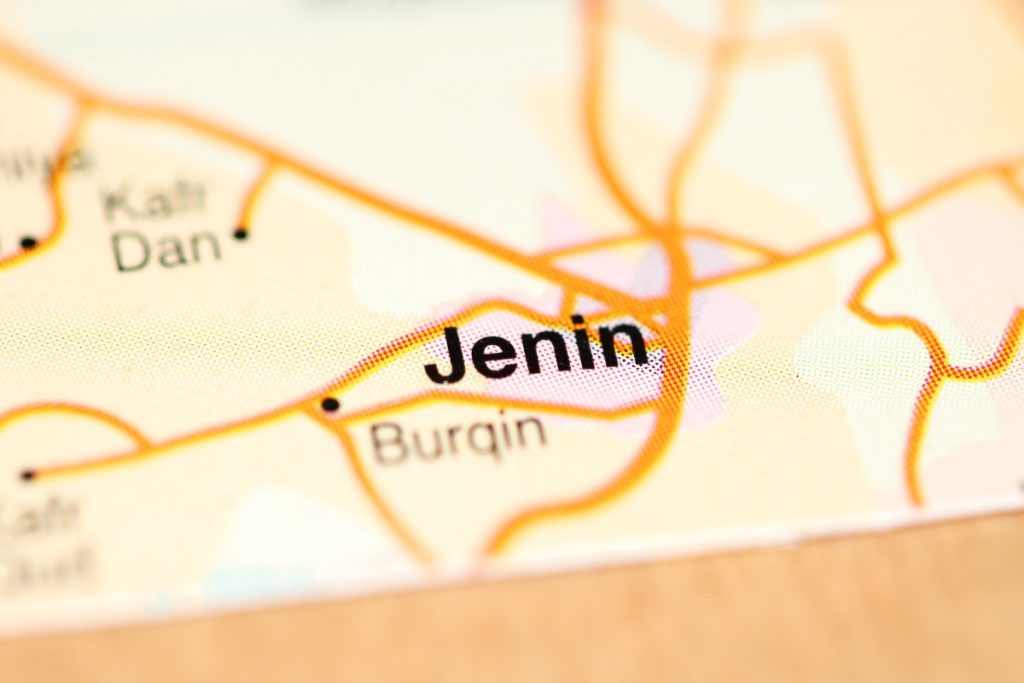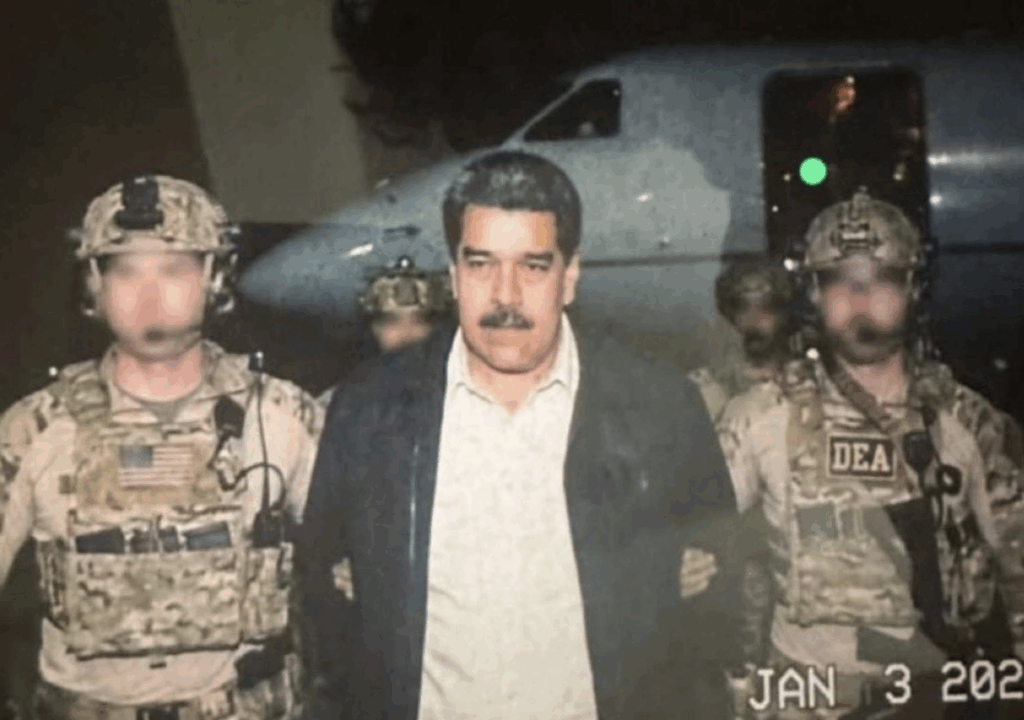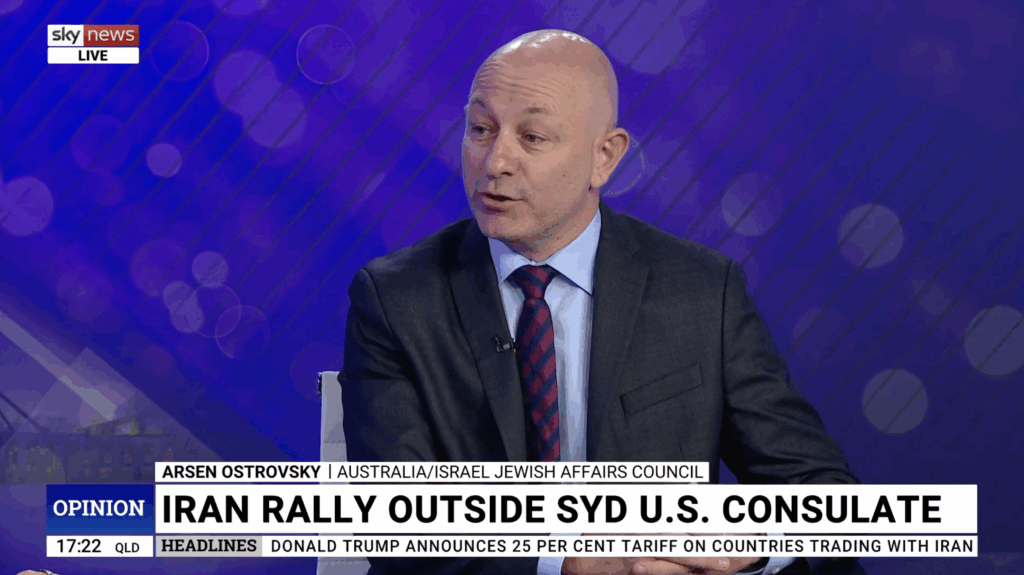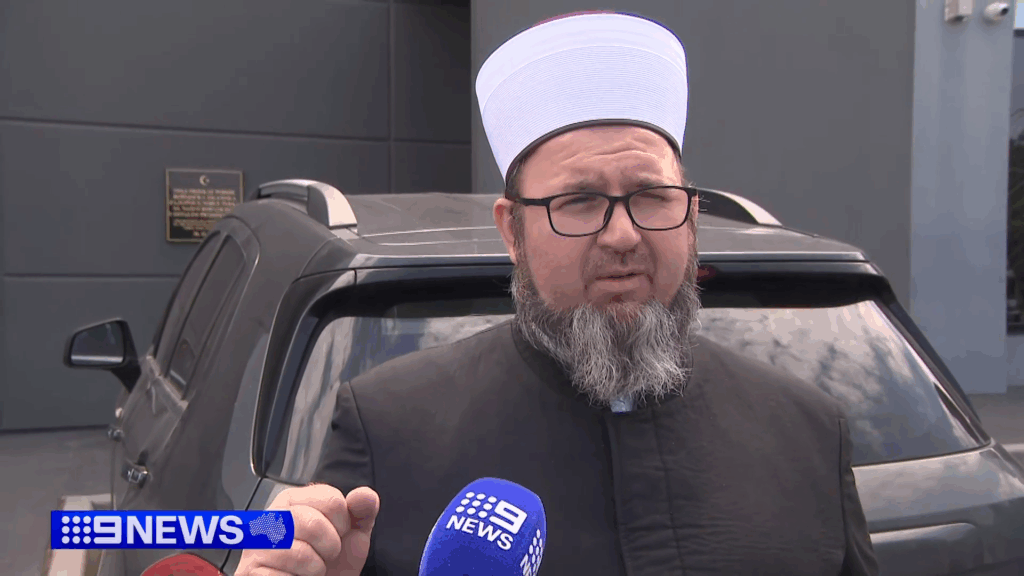UPDATES
Israel’s operation in Jenin
July 7, 2023 | AIJAC staff

Update 07/23 #01
Today’s Update looks at “Operation House and Garden”, the two-day Israeli military campaign against the terrorist infrastructure in the northern West Bank city of Jenin, which concluded on July 5. The Update gives the context for the Israeli operation and why it was necessary, looks at what occurred and what it achieved, and also reveals the sinister role of Iran in fomenting the violence emanating from the West Bank.
First, former MK and adviser to Shimon Peres, Ruth Wasserman Lande, a self-declared “liberal who had dedicated her entire professional life to promoting co-existence and peace,” writes that she is appalled by the lack of context and depth in media coverage of Israel’s operation in Jenin. She explains the Israeli decision to launch the operation was based purely on security imperatives, noting that terror attacks that had killed 28 Israeli civilians over the past six months could all be traced back to Jenin, and that the far-right members of Israel’s Government had been excluded from the decision-making process. To read this important context for the Israeli operation, CLICK HERE.
Next, Elisha Ben-Kimon, writing for Ynet News, sets out what Israel achieved in the operation. While it didn’t capture all of the terrorists it hoped to apprehend, many were arrested. Further, he notes that the Israelis also captured large amounts of weapons, explosives and ammunition, destroyed embedded IEDs which posed an ongoing threat to future operations, and restored a deterrent factor. To read the details, CLICK HERE.
Finally, in a piece written shortly before the operation, Dan Diker, President of the Jerusalem Centre for Public Affairs, sets out Iran’s strategy to encircle Israel with terrorist groups, and catalogues Iran’s involvement in the terrorism emanating from the northern West Bank. He provides evidence for his conclusions, including meetings between leaders from Iran and terror groups, and statements from Iranian leaders. To read this important expose of the malevolent force behind much of the West Bank-based terrorism, CLICK HERE.
Senior Jerusalem Post correspondent Seth Frantzman also explains that the growth of Palestinian Islamic Jihad in the West Bank is part of Iran’s strategy against Israel.
Readers may also be interested in…
- A useful summary of the operation and what it achieved, and also a terrorist attack in Tel Aviv and rockets from Gaza, from the Britain Israel Communications and Research Centre (BICOM).
- AIJAC’s Ahron Shapiro gives a more detailed description of the operation and the background, written shortly before the Israeli withdrawal.
- Palestinian Media Watch reveals that fighters affiliated with Palestinian President Mahmoud Abbas’ Fatah party were in the thick of the action in Jenin, while high-ranking Fatah officials including Palestinian Prime Minister Muhammad Shtayyeh called for fighting against Israel and endorsed and praised the Jenin terrorists.
- Avi Mayer, Editor in Chief of the Jerusalem Post, debunks a scurrilous claim by a BBC journalist that the Jenin campaign shows Israeli forces are happy to kill children, pointing out that all the Palestinians killed were terrorists, and draws parallels between reaction to the recent operation and the infamous false claims of an Israeli massacre following the 2002 battle in Jenin.
- Ben-Dror Yemini urges his Palestinian neighbours in Jenin to consider what future they’re hoping for, and to choose prosperity over terrorism.
- David M Litman of the Committee for Accuracy in Middle East Reporting and Analysis (CAMERA) sets out five important details you may have missed in media coverage of Jenin, including the threat of IEDs, the terrorists’ use of mosques and the IDF efforts to minimise civilian casualties.
- Liberia has announced it will be opening an embassy in Israel.
- Some examples from the many stories and comments now appearing at AIJAC’s daily “Fresh AIR” blog:
- Colin Rubenstein, writing in the Courier Mail, urges the ALP to ignore its pro-Palestinian activists who are advocating the self-defeating policy of recognising a Palestinian state.
- Justin Amler, writing in the Algemeiner, considers whether the US, having returned to UNESCO, will be able to influence the UN body to change its anti-Israel ways.
- Oved Lobel notes that, in spite of its involvement in the region, China doesn’t really care about the Middle East.
Hunting terrorists and sending a message, the operation in Jenin – opinion
Prior to the Israeli operation in Jenin, a series of terrorist attacks killed 28 innocent Israeli civilians over the past six months.
By RUTH WASSERMAN LANDE
Jerusalem Post
Published: JULY 6, 2023 20:27

One of several Palestinian terrorists eliminated during the IDF operation in Jenin (Image: Twitter)
Einstein said that “the difference between stupidity and genius is that genius has its limits.”
The entire world is pointing an angry finger at Israel. One need only look at – or listen to – the headlines of basically every newspaper, TV station, and/or radio channel throughout the world and the message is clear; the Israelis launched a military operation in a refugee camp in the Palestinian city of Jenin. Yes, we are indeed talking about the Israeli military, and indeed, an operation did take place within Jenin.
Yet where is the context? A little bit of depth, perhaps?
As a liberal who had dedicated her entire professional life to promoting co-existence and peace and an Arabist who reads, writes, and speaks Arabic, I am appalled at the complete and utter lack of integrity in such coverage. Why was an attack launched specifically now, after some two decades in which no such extensive Israeli military attack was launched within the West Bank? Who were the targets of this attack? Were they, in fact, the unarmed refugees living for over seven decades in despicable circumstances not fit for animals, within a camp which has zero right to exist, despite endless funds given over the years to the Palestinian leadership by the EU and other international role players?
What on earth had happened to all those funds, which were intended for the improvement of infrastructure, diversification of employment opportunities, transportation, and housing? Why do these refugees still live in a refugee camp, while Abu Mazen, the lawful internationally recognized president of the Palestinian Authority resides in undisguised luxury in the same West Bank?
So, for a little bit of that context: The operation was launched after much deliberation, excluding the more extreme Right factions of the current Israeli government. They were deliberately excluded from the decision-making process, and not even informed in a cabinet meeting prior to the operation, owing to a lack of trust which is rife among current coalition members. This rules out the innuendo in some media outlets that this operation was a result of the pressure from the extreme Right factions in the coalition, rather than out of necessity, and based on security considerations alone.

A sample of weapons seized in IDF operations in Jenin (Image: IDF/Twitter)
Terror preceded the operation in Jenin
PRIOR TO the aforementioned Israeli operation in Jenin, a series of bloody terrorist attacks killed 28 innocent Israeli civilians over the last six months. These premeditated murderous attacks can all be traced back to Jenin, where the armed, incited relatively young Palestinians – funded, trained, and encouraged by Iran and one of its proxies in the region, Hamas – felt empowered by the hero status that they had created for themselves among the Palestinian public.
Hamas impatiently awaits the downfall of its arch enemy – the current Palestinian leadership in the West Bank – in order to take over that region, and rule over the entire Palestinian population.
Meanwhile, it has invested in creating endless “platforms” within the West Bank, which serve the purpose of taking over the Palestinian streets from the current Fatah leadership. Hence, schools, mosques, and other civilian institutions have become sanctuaries for weapons, while Palestinian youth is trained in make-shift camps.
For the Fatah leadership in the West Bank, the current operation launched and carried out by the Israelis is a gift, yet they continue to sound the usual anti-Israel rhetoric against the occupation and the occupiers. Just to bring that point home, on Wednesday morning, the Palestinian president’s deputy who joined the burial event of the combatants who were killed by the IDF, was ousted from the arena in disgrace. That is, despite his known anti-Israel rhetoric throughout the years.
Why? Simply because the perpetrators and the “freedom fighters” belong to Hamas and the Islamic Jihad. The rest of the civilians and those poor refugees – whose leadership insists that they remain in this status, despite endless opportunities to have improved their lives over the past several decades – have been safely evacuated by UNRWA, without Israeli interference. That is simply because the Israeli leadership has little or no interest in hurting innocent bystanders and civilians.
The sole interest of this specific operation was to hurt the perpetrators of the dreadful and gruesome terrorist attacks which Israelis have lived through in the last six months, and to send a clear message to its enemies that there is only so much that Israelis will stand before halting the killing rampage which has become the recent Israeli reality.
The writer is the founder and CEO of Ruth-Strategic Consulting, a former MK for the National Unity Party, a former deputy ambassador to Cairo, and a past adviser to president Shimon Peres.
What has Israel accomplished in the Jenin operation
Opinion: The intense 48-hour offensive ends without innocent civilian lives lost; Israeli forces successfully withdraw, arresting 30 terrorists and neutralizing future threats by confiscating explosives and weapons, achieving the objective of restoring deterrence
Elisha Ben-Kimon|
YNet.news.com
07.05.23

Israeli Prime Minister Netanyahu with Defence Minister Yoav Gallant and IDF leaders (Image: GPO/Flickr)
After an intense 48-hour operation, the situation in the Jenin refugee camp is approaching its conclusion. Following extensive preparations spanning several months, IDF special forces have successfully withdrawn from the refugee camp after completing their counterterrorism offensive.
Despite deploying significant forces, it is important to note that no innocent civilians were harmed during the operation. Among the casualties of the operation were 18 Palestinians who were confirmed terrorists and engaged in hostile fire against Israeli forces.
An IDF fighter was killed last night during an intense exchange of gunfire inside the refugee camp. Despite receiving immediate medical treatment in the field and being airlifted to the HaEmek Medical Center in Afula, he succumbed to his injuries. The fighter’s family has been notified, and a thorough investigation into the incident is underway.
While the operation resulted in the arrest of 30 terrorist operatives, the Shin Bet aims to apprehend additional targets. The objectives that prompted the IDF to initiate the operation will now be carefully evaluated: restoring deterrence in Jenin and other refugee camps in the West Bank, and ensuring unhindered operational capabilities in the region.
The IDF and Shin Bet have expressed their desire for additional arrests to be made during the ongoing operation, particularly targeting known terrorist operatives who have been wanted by security forces, for some time. Currently, the Shin Bet has successfully apprehended 30 activists that were on their radar, although this number falls short of their expectations.
The terrorists responsible for carrying out attacks and seeking refuge in Jenin have not been apprehended, including those involved in the murder of Meir Tamari over a month ago. The challenging factor contributing to this is the escape of armed individuals from their hideouts within the refugee camp, with some even using ambulances as cover to flee into the camp’s hospital for concealment.
One of the primary objectives of the operation was to restore deterrence, particularly in the Jenin refugee camp, as well as in other areas. In recent months, Jenin has become a sanctuary for terrorists, with its militants acting as defenders for those responsible for carrying out attacks on the West Bank and inside Israel.
The IDF’s Central Command had intermittently entered the camp based on intelligence and successfully apprehended suspects. However, each operation required substantial forces, extensive preparations, and the use of force, which, on occasion, resulted in unintended harm to non-combatants and generated international criticism of the IDF’s activities in the territories. The military hopes that the restoration of deterrence in Jenin will also have a ripple effect on other areas throughout the West Bank, such as Tulkarem, where terrorists began to adopt similar tactics and where a similar terror hub could potentially develop.

IDF operations in Jenin (Image: IDF/Twitter)
The IDF and Civil Administration made significant efforts to ensure that the uninvolved Palestinian population understood that the operation solely targeted the terrorists present in the refugee camp. To emphasize this point, it was determined that all West Bank crossings would remain open for the passage of workers in Israel, throughout the operation, including those near Jenin. Additionally, there was a direct dialogue between security forces and the residents of the refugee camp, urging them not to participate in the fighting and warning them about potential attacks. These measures aimed to communicate the limited scope of the operation and minimize any unintended impact on the civilian population.
The impactful images of Palestinian families leaving their homes to seek safety, vividly demonstrate the distinction that the IDF emphasized. The true test of the operation’s success will be reflected in future military actions in Jenin, specifically in terms of the level of resistance encountered and the extent to which arrests can be carried out inside the refugee camp with a reduced force.
Moreover, the IDF reports that the operation achieved its objectives. Firstly, a substantial amount of weapons and explosives were discovered, significantly reducing the arsenal available to the terrorists. Secondly, the engineering units, under the guidance of the Shin Bet, successfully exposed and neutralized the planted axles and explosive charges, eliminating one of the major threats posed to the troops, by the terrorists in Jenin.
Iran’s Pincer War on Israel is No Intifada
Dan Diker
Jerusalem Center for Public Affairs
This article originally appeared in the South African Jewish Report on June 29, 2023.

From right to left: Iranian Supreme Leader Ayatollah Ali Khamenei, and Hamas officials Saleh al-Arouri, Maher Salah and Musa Abu Marzouk (Khamenei’s office)
There has been a tendency in the West to categorise Palestinian terror assaults on Israel as “intifadas”. The nomenclature derives from the 1987 violence that raged across Palestinian Arab cities in Judea and Samaria (the West Bank), which were triggered initially by local Arab demands for greater socioeconomic freedom and a higher standard of living, similar to those of Israeli Arabs.
Within months, the intifada was co-opted by Tunis-based Palestine Liberation Organization (PLO) leader Yasser Arafat as a continuation of his decades-long commitment to total warfare to destroy the Jewish and democratic state, as stated in the 1968 PLO charter. The brand “intifada” would be carved into the consciousness of the international media. It would also be misapplied to future suicide terror campaigns by Hamas, Fatah, and Palestinian Islamic Jihad (PIJ) in the 2001 to 2004 Second Intifada. That campaign was known as the “Al-Aqsa Intifada” – an Islamic war centred on the 100-year-old Palestinian claim that the Jews were defiling the Al-Aqsa mosque, as the first Palestinian clerical leader, Haj Amin al-Husseini, had declared in the 1920s.
In 2023, the latest upsurge in Palestinian terror in the northern Samarian cities of Jenin and Nablus is easier to recognise. That’s because Iran Supreme Leader Ayatollah Ali Khamenei has openly called for the regime’s Islamic revolution to be exported to the hills of northern Samaria. This is no intifada. It’s a premeditated Iranian regime “pincer” war now executed from the northern Samarian hills.
Iran now outflanks Israel on three sides: from Gaza in the south, Islamic Revolutionary Guard Corps (IRGC) operatives Hamas and PIJ have targeted Israel with tens of thousands of rockets and terror tunnels. From Israel’s northern neighbours Lebanon and Syria, IRGC Quds forces and Hezbollah’s proxy terror army has about 180 000 rockets and laser-guided missiles directed at Israeli cities. Hezbollah has even set up outposts on Israel’s side of the blue line with Lebanon.
Now, the Iranian regime has taken its 44-year-old war to Israel’s Samarian hills that overlook Ben Gurion Airport and Israel’s main cities along the Mediterranean coast. The evidence is overwhelming. The week of 18 June 2023, Hamas and PIJ leadership visited Tehran for a meeting with the Quds force, the foreign arm of the IRGC, to discuss the Israel Defense Forces’ (IDF’s) operation Shield and Arrow in Gaza, and to co-ordinate militant actions against Israel, continuing the multi-arena strategy devised by former IRGC Commander Qassem Soleimani, who was killed by a United States drone strike in 2020, but whose strategic legacy remains.
The high-level meetings coincided with a surge of terrorist attacks in Judea and Samaria, including some perpetrated by PIJ and Hamas. It encouraged Iran, which seeks to establish the West Bank as an additional battleground in its escalating war against Israel, a country they wish to encircle and destroy. A recent terror attack which killed four Israeli diners at the entrance to the Eli community in Samaria in the northern West Bank is just the latest Iran-backed assault. Since January 2023, about 30 Israelis have been killed in Iranian-backed terror attacks.
Iran’s terror campaign isn’t occurring in a vacuum. Historical context is important. Since 1979, Iranian leaders have branded Israel “the Little Satan”, and vowed its destruction. The Iranian regime has persisted in that aim. For years, the IRGC has supplied weapons and directed PIJ and Hamas. The IRGC weapons ships Karine A (2002); Calypso (2003); and Klos (2014), sent to supply the PLO and Hamas in Gaza with thousands of tons of weaponry, were soon forgotten by the international community.
Until recently, the Iranian regime’s IRGC and its Quds terror-export force had mostly focused their presence in the Gaza strip, where IRGC agents have been on the ground since the 2014 Gaza war, assisting Hamas in drone and rocket production. Former IRGC Chief Qassem Suleimani advised Hamas on its Great March of Return campaign, paying Gazan teens thousands of dollars to commit suicide by storming the Gaza-Israel border fence, drawing Israeli fire. IRGC terror operatives were also involved in the building of Hamas’ terror tunnels, built to kill or capture Israelis, of which it currently holds four in captivity.
Significantly, Iran views the collapse of the secular, Fatah-dominated Palestinian Authority’s (PA’s) governance – a competitor to the two Islamist militant organisations its regime backs, PIJ and Hamas – as an opportunity to pounce on the northern West Bank. Ironically, recent Palestinian polls reflect public support for Iranian-backed local terror militias such as Lion’s Den as a function of public frustration with the highly corrupt PA. Since the aging Abbas is unlikely to have a clear successor, chaos will ensue as these armed groups vie for control, while Iran will exploit the power vacuum to its own advantage.
The Iranian penetration in northern Samaria in the West Bank marks the most far-reaching sign that Iranian terror forces have penetrated Israeli territory and pose a strategic threat. IRGC officials assured PIJ leader Ziyad al-Nakhalah that Iran would smuggle additional weapons to the West Bank through Jordan, and that PIJ would receive more financial support. Iran also demanded the establishment of rocket production facilities in northern Samaria.
Nakhalah praised Iran’s unwavering support for Palestinians, saying, “No other country in the world takes such a stance so explicitly”, “a testament to Tehran’s support for the Palestinian resistance factions” that also “highlights strong ties between PIJ, Hamas, and the Islamic Republic.” Nakhalah also met Mohammad Baqer Qalibaf, the Majlis (Iranian parliament) speaker, on 17 June.
Hamas leader Ismail Haniyeh also met both Supreme Leader Khamenei and Iranian President Ebrahim Raisi. Haniyeh stated that the June terror attack in Eli that killed four was “just the beginning” of a renewed campaign against Israel. Haniyeh’s deputy, Saleh al-Arouri, the head of Hamas’ military wing in Judea and Samaria responsible for the attack, was also in Tehran.
In Iran, Hamas official Osama Hamdan also mentioned the important role of Israeli Arabs in the battle against Israel, evidenced in events during the IDF’s Guardian of the Walls operation in May 2021. He said the West Bank was entering a new stage of resistance, referring to Iran’s creation of 20 to 30 new “battalions” of 2 000 militants in northern Samaria, which aims to spread to central Judea and Samaria, around Ramallah.
As Iran intelligence analyst Micky Segal has noted in a recent Jerusalem Center for Public Affairs analysis, Khamenei reiterated the importance of the West Bank, saying that “Gaza is the centre of resistance, while the point that will bring the enemy to its knees is the West Bank”. Khamenei, who meets often with PIJ, said, “The growing power of the resistance groups in the West Bank is the key that can bring the Zionist enemy to its knees, and it’s crucial that we continue along this path.”
Iran’s pincer war on the Jewish state has been a long time coming since 1979, with the violent takeover of Iran by the ayatollahs. In 2014, Khamenei declared, “I believe the West Bank should be armed just like Gaza.” General Soleimani’s IRGC Quds Force has made an effort since then to arm Palestinians in the West Bank on orders from Khamenei.
Israel isn’t standing idly by. The Israel Defense Forces has been planning for the IRGC terror encampment and campaign on its three borders. The IRGC’s penetration into the hills above central Israel will probably be met in the near term with a massive, uncompromising counterterror campaign to secure Israel’s major cities and protect its citizens from Iran’s jihad.
Tags: Iran, Israel, Palestinians, West Bank






